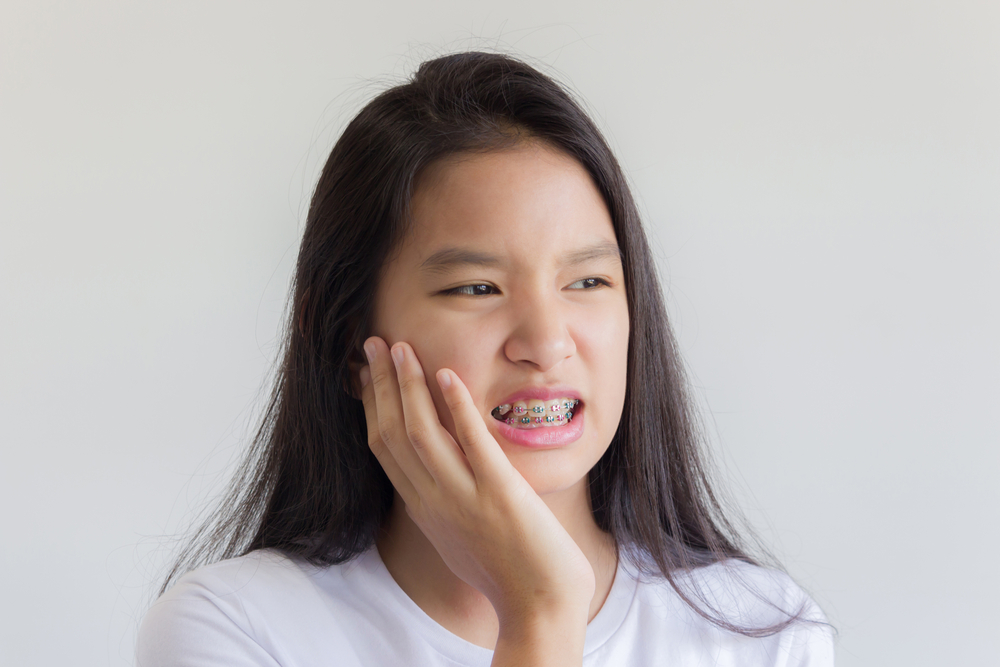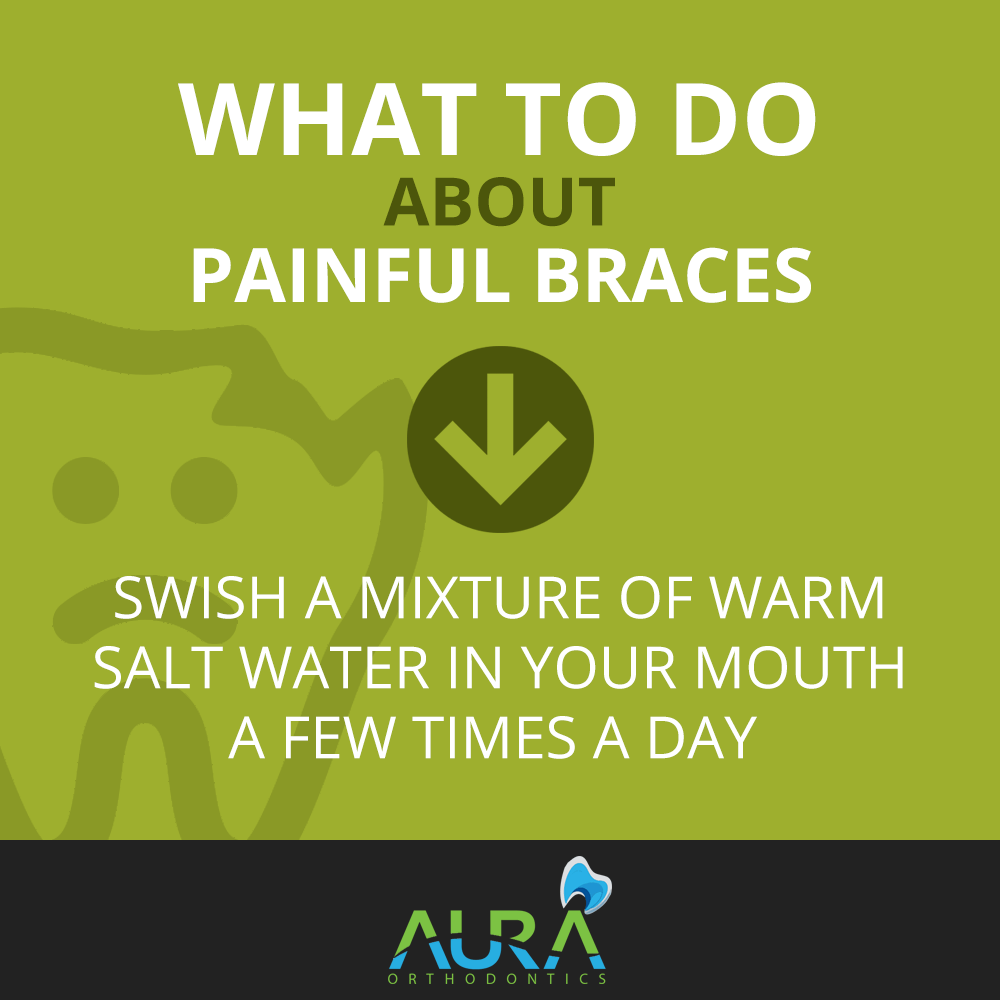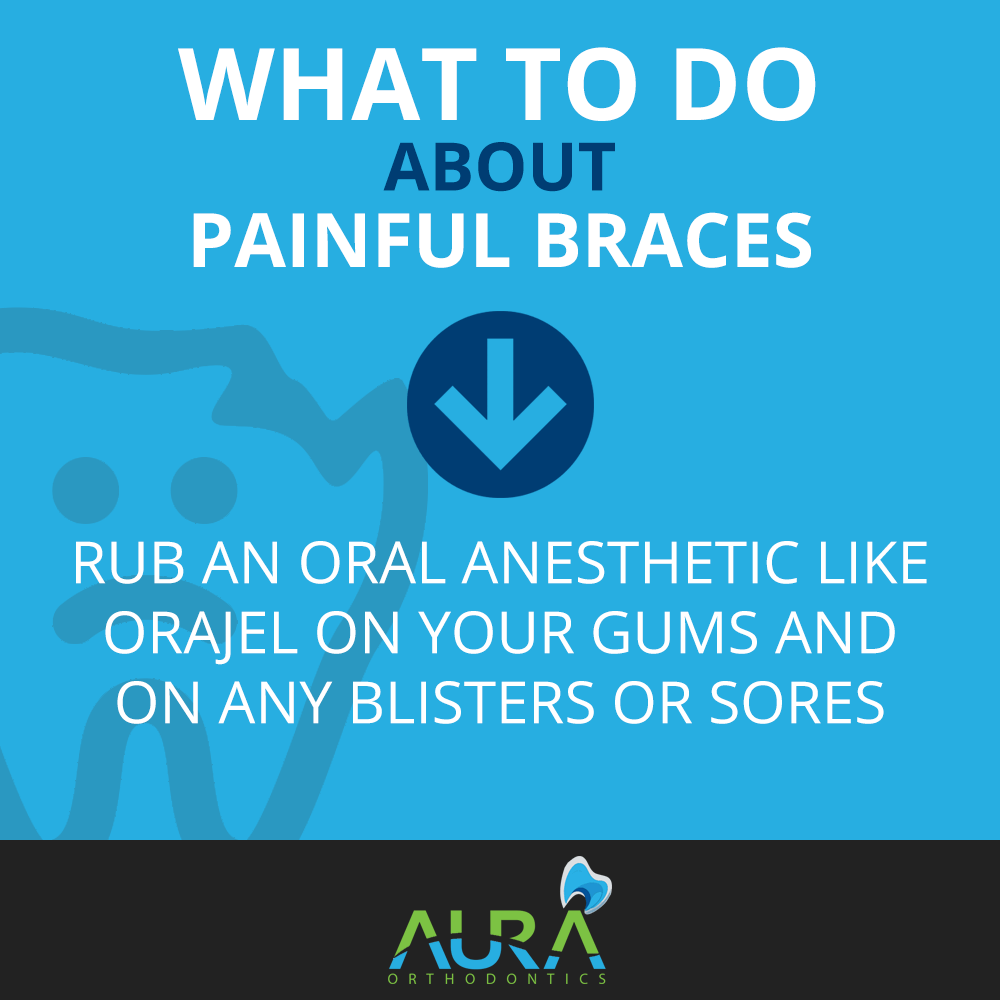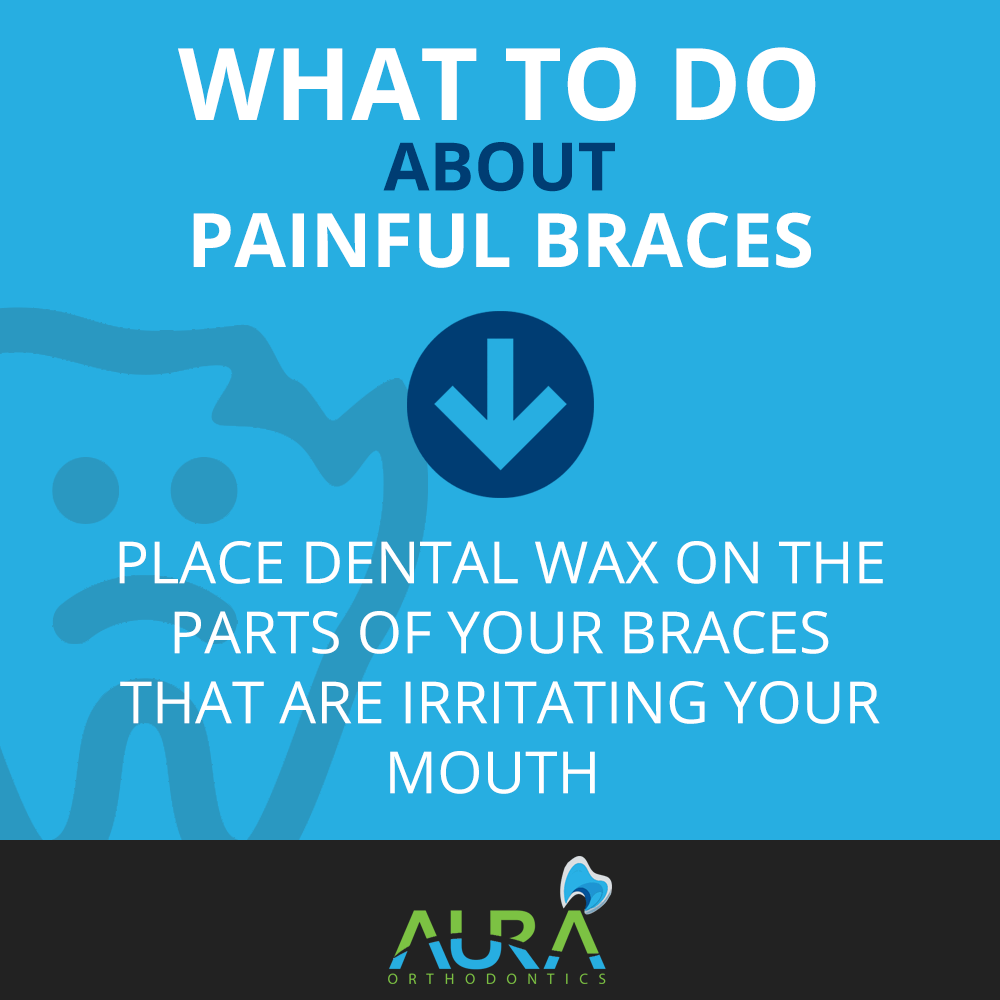
We love braces here at Aura Orthodontics! Yes, as orthodontists, we’re probably a little biased, but the system of brackets and wires shifts the teeth into place to give patients a smile they love, while also improving their oral health. Though braces sometimes get a bad reputation thanks to the bulkier appliances of the past, today’s braces are smaller, more streamlined and more comfortable than ever before. And while you’ll never feel extreme braces pain, at certain points during your treatment, you may have some tenderness and sensitivity.
To help, we’re sharing everything you need to know about braces and pain, as well as the tips we give our Langley and Surrey braces patients for managing discomfort.
In this post, we’ll cover:
- Does getting braces hurt?
- Are braces painful once they’re on?
- How long do your teeth hurt after getting your braces tightened?
- Does getting your braces off hurt?
- How to stop braces pain
Does getting braces hurt?
Nope! Getting braces does not hurt. The process is completely painless and there are no needles involved. Dr. Sharma, Dr. Koo or Dr. Lin, our certified specialists in orthodontics, will use a solution to prep your teeth and then they’ll put the brackets on – it’s sort of like they’re sticking stickers on your teeth. The brackets have an adhesive on them, so they’ll stay put throughout your treatment. Once your brackets are in place, the doctor will thread your archwires through the brackets and that’s it, you’re on your way to a straighter smile.
Are braces painful once they’re on?
While getting braces on doesn’t hurt, your teeth will feel tender afterwards as your new appliance exerts pressure. As we said, you won’t feel severe braces pain, but mild discomfort is par for the course. Your teeth and jaws will be sore for a few days and discomfort should be gone after about a week.
Your brackets, wires and cinches (the wire locks placed in the back of your mouth) can also rub against the inside of your mouth causing irritation. This is normal. Your mouth will “toughen up” and the irritation or rubbing will stop within a few weeks.
How long do your teeth hurt after getting your braces tightened?
Occasionally, your teeth can hurt after getting your braces tightened. This means your braces are doing their job and moving your teeth into their ideal places. Discomfort will be even more mild than it was when you got your braces put on and will disappear more quickly. After having your braces tightened, your teeth will only hurt for a day or two.
Does getting your braces off hurt?
Not at all. Getting your braces off is just as painless as getting them put on, though you may feel a little pressure. Your Surrey or Langley, BC orthodontist will use special tools to gently take out your wires and remove your brackets. They’ll get rid of any leftover adhesive, polish your teeth and let you admire your new smile in the mirror.
How to stop braces pain
Now that you know when your braces can hurt, you’re probably wondering how to stop braces pain. We’ve got you covered. Try these tips to alleviate any discomfort:
1. Head off Soreness Before it Starts
You can take an over-the-counter pain reliever like Tylenol right before your appointment to get your braces put on, which is called your bonding appointment in orthodontist speak. This way, by the time your braces put pressure on your teeth, the pain reliever will be working.
2. Eat Soft Foods
Kick off your first week with braces by sticking with soft foods, as well as cold foods and drinks. The best soft foods for braces include things like protein shakes, smoothies, oatmeal, scrambled eggs, mashed potatoes, applesauce and yogurt. Anything that doesn’t require much chewing and is easy on the mouth will be helpful and cold can offer a bit of numbing. Once sensitivity subsides, you can go back to your usual diet with a few exceptions.
3. Make a DIY Saltwater Mouth Rinse for a Sore Mouth
A saltwater mouth rinse will soothe a sore mouth if your braces are causing irritation. Simply add one teaspoon of salt to a glass of warm water and stir it until the salt dissolves. Swish a mouthful of the solution in your mouth for about 30 seconds and then spit it out. Repeat this until you’ve finished the whole glass. You can use the saltwater mouth rinse for a sore mouth a few times a day.

4. Apply an Oral Anesthetic
Another way to combat braces irritation is to use an oral anesthetic like Orajel. Rub the product on your gums or any sores or blisters to numb them. Once your mouth gets acclimated to your appliance, the irritation will stop and you won’t need the oral anesthetic anymore.

5. Use Orthodontic Wax
When you start your treatment, we’ll give you orthodontic relief wax. Put it on the parts of your braces that are bothering you to act as a buffer between your appliance and your mouth.
Here’s how to use wax for braces:
- Dry off the areas of your braces that are rubbing against your mouth with a clean tissue or cotton swab.
- Break off a piece of wax.
- Roll the wax between your fingers to warm it up.
- Place the wax where you want it and gently flatten it against your braces.

6. Use Your Toothbrush to Combat Swollen Gums With Braces
When you don’t have braces on your teeth, you stimulate your gums every time you chew food, especially raw, fibrous foods like carrots and apples, which increases blood flow. When you get braces put on, however, the brackets and wires reduce the amount of contact between the food and your gums.
If you notice you have swollen gums with braces, use your toothbrush to brush and gently massage your gums and the area of your teeth between your braces and gumline. Not only will this help prevent cavities, it should also reduce swelling and tenderness by providing the necessary stimulation.
If swollen gums with braces persist or are accompanied by bad breath, bleeding and redness, you could have gingivitis. Be sure to brush and floss thoroughly and regularly to keep your gums healthy and schedule a visit with your general dentist to evaluate the issue.
7. Take an Over-the-Counter Pain Reliever
If you’ve tried our other tips and you’re still uncomfortable, taking an over-the-counter pain reliever can be a good way to stop braces pain. Take whatever you’d normally take for a headache according to the dosage instructions on the package or from your doctor.
By knowing what helps with braces pain and how to find relief, you’ll have a comfortable, successful smile journey. And, remember, if you ever feel anything more than mild braces pain, give our office a call and we’ll assess what’s causing it and fix the problem.
If you haven’t started treatment yet and you’d like to learn about the different types of braces we offer and which option is the best choice for you, schedule a consultation at our Langley or Surrey, BC orthodontic office today!





